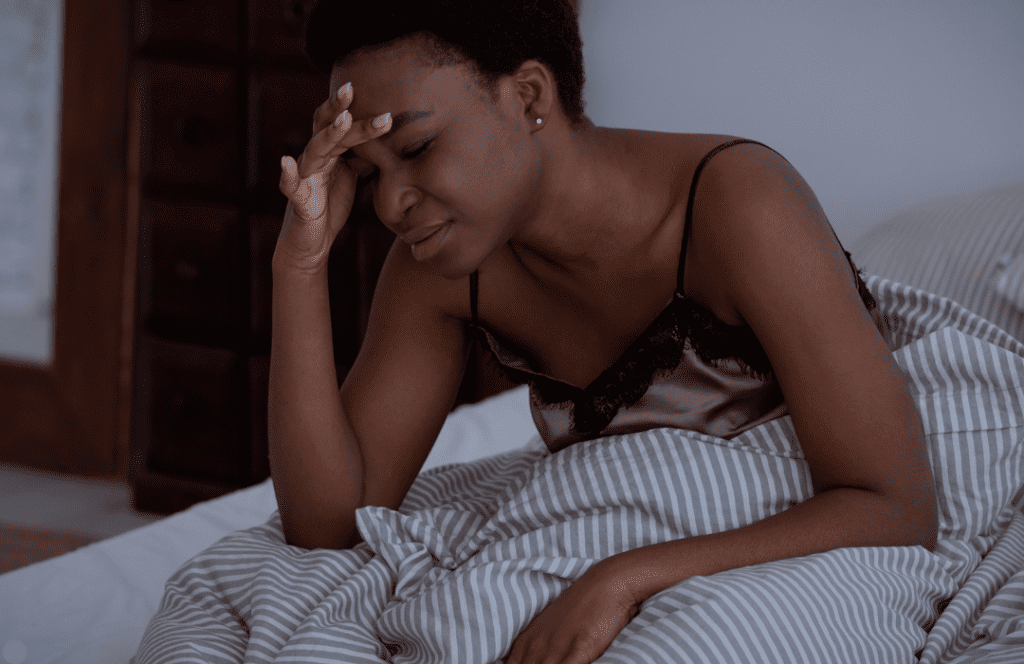In a recent survey that looked at the habits of 2,000 Americans—the results were staggering: nearly 60% of Americans report they “rarely feel rested and energized in the morning.”
A variety of factors, including pain, insomnia, anxiety, obesity, and even phone use can contribute to lackluster mornings. While each of these issues are unique, remarkably, they’re also connected to hormonal health.
“Hormones are a root cause of many disease processes when they’re out of balance,” said hormonal health expert Dr. Terri DeNeui DNP, APRN, ACNP-BC, on her podcast The Dr. Terri Show. “One of the top three things almost every single patient that comes into our clinics and the clinics of the practitioners we train across the countries is I feel tired.”
Sure enough, our hormones— the sex hormones like estrogen, testosterone, and progesterone, as well as others like melatonin and cortisol—impact how we sleep and we wake up because they regulate our routines and have bearing on poor sleep factors like joint pain, stress, and obesity.
The Relationship between Hormones and Sleep
To operate efficiently, the body relies on a variety of hormones released by the endocrine system, a network of organs and glands distributed throughout the body. Once released, these hormones are responsible for instigating and regulating the body’s many complex processes, including our sleep: sleep/wake homeostasis, and the circadian biological clock.
Sleep/wake homeostasis is a mechanism that ensures your body’s need for sleep becomes stronger the longer you remain awake. If this process were the sole regulator of your sleep/wake cycles, you would, in theory, feel most energized in the morning and grow progressively tired by the end of the day. However, your circadian rhythm introduces changes in sleepiness and alertness throughout the day, and this internal clock is heavily influenced by our hormones.
According to a 2015 study from the Journal of Endocrinology, “Hormones such as growth hormone, melatonin, cortisol, leptin, and ghrelin are closely associated with sleep and circadian rhythmicity.” Likewise, the sex hormones also fluctuate in relationship with the circadian system.
In other words, if your hormones are out of whack your bodily queues to sleep or wake will change too, and this can contribute to that sluggish feeling in the morning. And, on the other side of the coin, if you sleep poorly, this can instigate or exacerbate existing hormonal imbalances.
A variety of things can lead to hormonal imbalances that cause sleep disturbance and, by extension, crummy mornings. These include the obvious, like menopause or andropause, but also staring at bright screens before bed, which can inhibit the production of the sleep-inducing hormone melatonin, as well as stress and obesity, which are tied to cortisol overproduction, which inhibits relaxation and sleep.
Fix Your Hormones and Wake Up Refreshed
The good news? You can turn your mornings around and reclaim your energy by getting your hormone levels back where they need to be.
When sleep-impacting hormonal deficiencies are minor, they can be managed by eating a balanced diet, getting enough exercise, managing stress, taking supplements, and curbing screentime before bed. But, in many cases, hormone replacement therapy is the best way to get your sleep back on track.
Studies report marked sleep improvements for menopausal women undergoing estrogen replacement therapy. Likewise, sleep disturbance has been recognized as one of the main signs of hypogonadism or a condition when the male testes don’t function properly. Testosterone replacement therapy has been shown to improve this condition, as well as the sleep disturbances that result from it.
Hormone replacement therapy may also have a positive impact on things like joint pain and obesity, two factors that commonly create long-term sleep issues for people. One story Dr. DeNeui told on her podcast illustrates this less-explored relationship.
“I had a patient one time, she had chronic foot pain every morning when she got up and she’d been to multiple clinicians,” said Dr. DeNeui. “She came in and let us do an evaluation of her and she had a lot of [hormonal] deficiencies and we fixed those and she called me about five days later and she said, ‘I don’t know if this is placebo, but this is the first time in years I’ve woken up without foot pain.’”
Ready to make your mornings easier? EVEXIAS’s functional medicine providers can explain how hormone therapy works and prescribe nutritional supplements and other therapies to help support your ability to wake up energized and revitalized.







